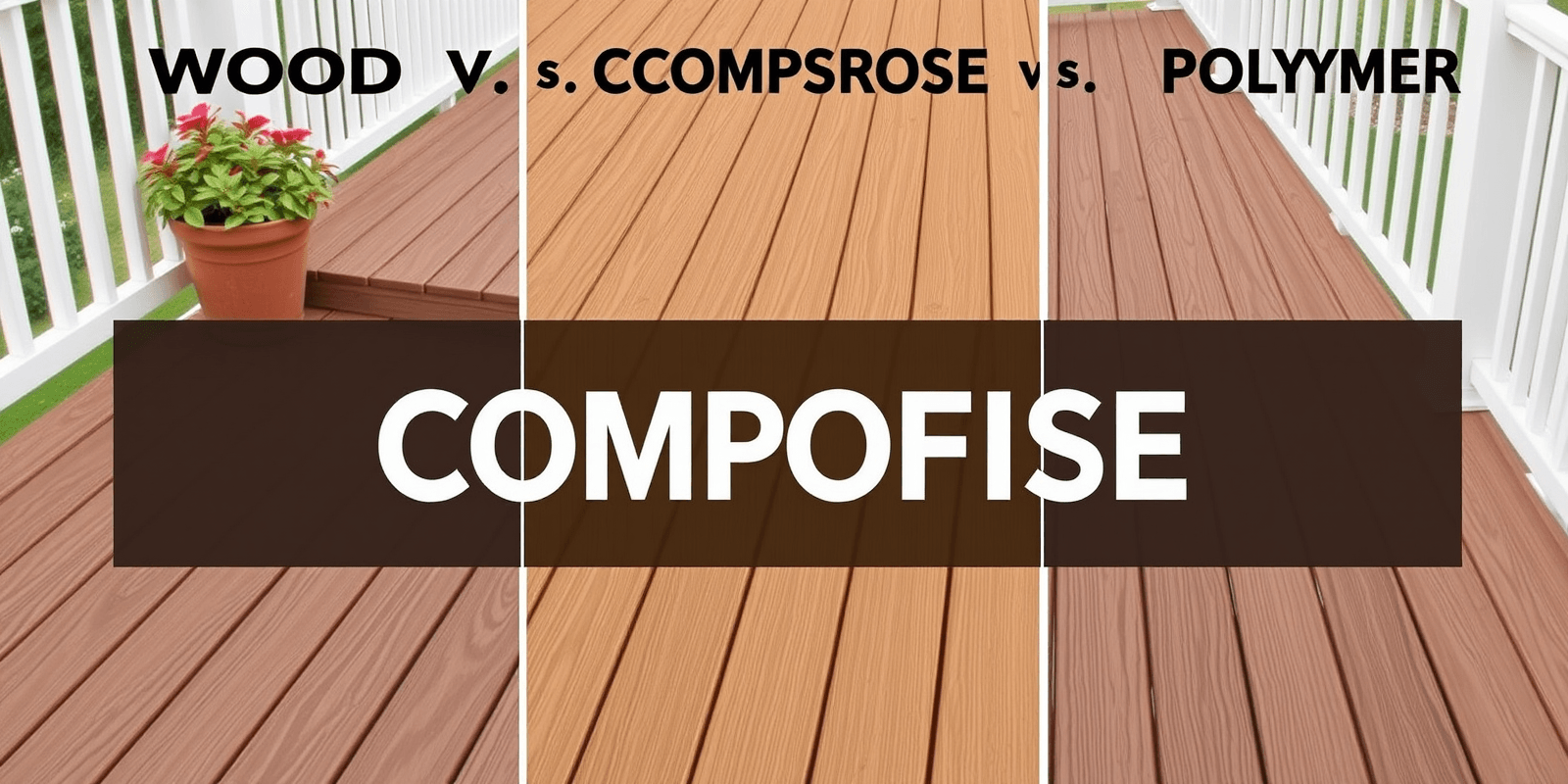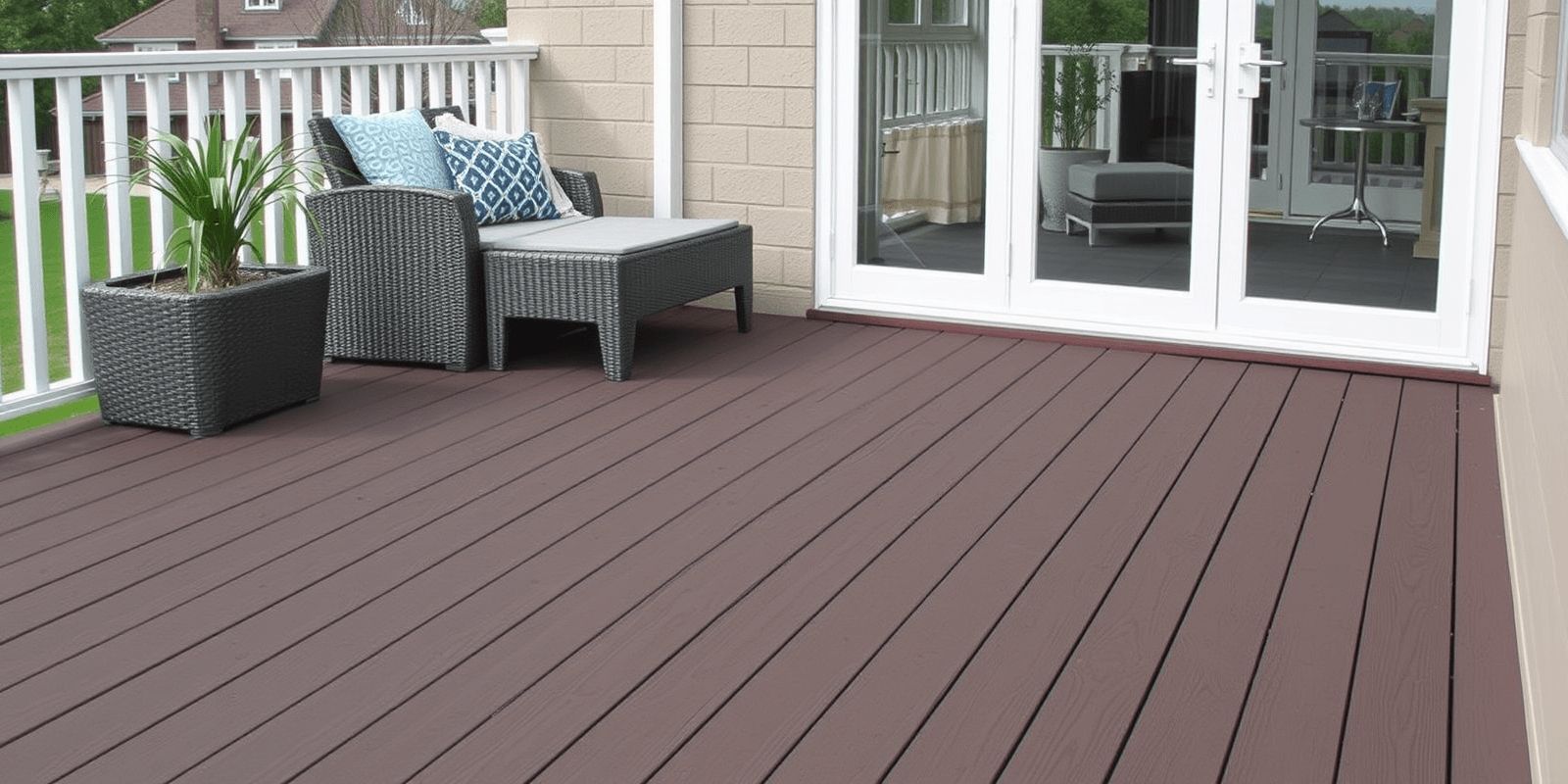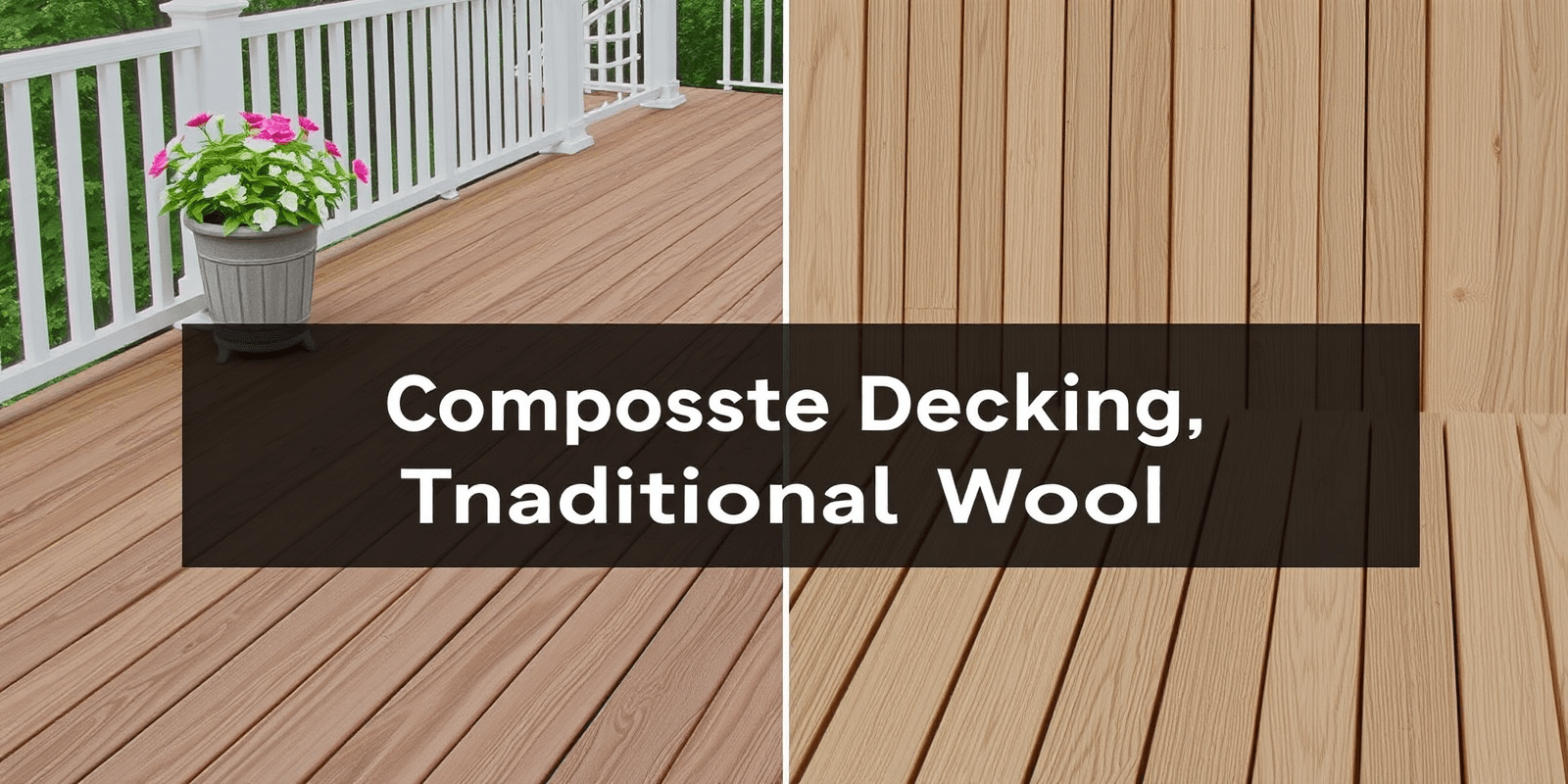Wood vs Composite vs Polymer Pricing Decking
Explore the cost implications of using wood, composite, and polymer materials in deck construction. Learn about initial costs, maintenance expenses, durability, and environmental impact to understand the overall value proposition for each material type.
Introduction
In the realm of outdoor living spaces, deck construction is a significant investment. The choice of material can greatly affect not only the aesthetics but also the long-term cost and sustainability of your deck. This article will detail the cost implications of using wood, composite, and polymer materials in deck construction, focusing on initial costs, maintenance expenses, durability, and environmental impact.
Initial Costs
When it comes to initial costs, wood is often the most economical option. Traditional pressure-treated lumber can be purchased at a relatively low price, making it a popular choice for budget-conscious homeowners. However, high-end hardwoods like cedar or redwood can be significantly more expensive.
Composite materials are generally more costly than wood upfront due to their engineered nature and the advanced manufacturing processes involved. Polymer-based decking materials tend to fall somewhere in between wood and composites in terms of initial cost.
Maintenance Expenses
Wood decks require regular maintenance, including staining or painting every few years to protect against moisture and rot. Additionally, wood may need periodic sanding and sealing to maintain its appearance and structural integrity.
Composite decks, while still requiring some upkeep, are generally easier to maintain. They do not require painting or staining, and minor cleaning with soap and water is usually sufficient. However, they can develop a faded appearance over time and may require occasional replacement of individual boards.
Polymer decks are the lowest-maintenance option. They resist fading, staining, and warping, requiring minimal upkeep beyond occasional rinsing with a garden hose.
Durability
Wood decks are susceptible to weathering, insect damage, and rot, especially if not properly maintained. High-quality hardwoods like cedar and redwood offer better resistance but still require care.
Composite materials are designed to be highly durable and resistant to moisture, insects, and fading. They can withstand harsh weather conditions better than wood and are less prone to warping or cracking.
Polymer decks are extremely durable, offering excellent resistance to moisture, stains, and UV rays. They are virtually impervious to rot and insect damage, making them a long-lasting option.
Environmental Impact
Wood is a renewable resource, but its production involves deforestation and chemical treatments that can have negative environmental impacts. Sustainable sourcing practices and the use of reclaimed wood can mitigate these effects.
Composite materials are made from a blend of wood fibers and recycled plastics. While they reduce waste by incorporating recycled materials, the production process itself can be energy-intensive and may involve the use of harmful chemicals.
Polymer decks are typically made from 100% recycled plastic, which helps reduce landfill waste. However, the production process can still have environmental impacts, and the disposal of polymer decks at the end of their life cycle remains an issue.
Overall Value Proposition
When evaluating the overall value proposition, it’s essential to consider both initial costs and long-term expenses. Wood decks offer a lower upfront cost but require more maintenance and may have shorter lifespans if not well-maintained.
Composite decks provide a balance between cost and durability. They require less maintenance than wood and offer a longer lifespan, making them a good investment for many homeowners.
Polymer decks represent the highest initial investment but offer the best long-term value due to their minimal maintenance requirements and exceptional durability. They are ideal for those seeking a low-maintenance, long-lasting solution.
References
Family Handyman – How to Build a Deck



